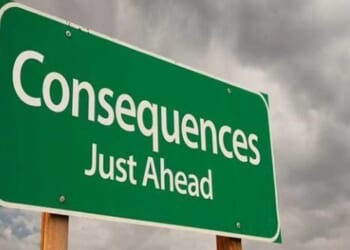Amid the tumult over tariffs, let’s not forget a war rages on in the Middle East and terrorists are still holding innocent people hostage. Douglas Murray hasn’t forgotten. His latest book, On Democracies and Death Cults: Israel and the Future of Civilization, has just come out. Weekend Beacon contributor Meir Y. Soloveichik has a review.
![]()
“I had been scheduled to speak in October 2023 in a London synagogue, at an event about my recent book. Following the horror of the 7th, with more terrible revelations emerging every day, it was decided to transform the event into a reflection on what had occurred. Douglas was the first asked to speak. Over 10 minutes of astonishing eloquence—in a speech that has been viewed over a million times on YouTube—Douglas told the British Jews assembled in the sanctuary that they were not alone and that there were many around the world who stood with the Jewish people against the barbarians. I will never forget his final words:
I speak for myself when I quote, if I may, in closing, one of my favorite lines in Scripture from the book of Ruth. You all know it. “Whither thou goest, I will go. And where thou lodgest, I will lodge. Thy people shall be my people and thy God my God.” And I tell you this with utter certainty. If they keep coming for the Jews, they keep coming for you: I’ll tell you this. They may come for the Zionists. Very well. I am a Zionist. They may keep coming for the Israelis. Very well. I’m an Israeli. They may come continuously for the Jews. Very well. I’m a Jew. Am Yisrael Chai.
“Douglas, of course, is not a Jew; and if one wishes to understand why he so identifies with the Jewish people, they should read his new book, On Democracy and Death Cults: Israel and the Future of Civilization. In a certain sense, this work is similar to his previous publications, offering a striking reflection on the future of the West, and on the reluctance of so many to defend its values.
“But this moving book is much more, because of its personal nature, giving us a window into the mind, and heart, of a Gentile who has stood with the Jews, and who has spent so much of the last year and a half in the Jewish state. We are with him as he meets bereaved families, when he witnesses the hell on earth that is the remnant of Jewish towns near Gaza; we are with him when he is experiencing an Israeli society at war, and when he is embedded with the Israeli soldiers waging war. We are with him as he sits in the holiday hut that embodies the Jewish festival of Sukkot, and learns from an army source that Yahya Sinwar, mastermind of the October 7 attacks, had been killed. And then, incredibly, we are with him soon after, as he visits the very site where Sinwar breathed his last, and sits in the seat where the monster had spent his final moments on earth, the blood of the villain still on the chair as Douglas reflects on what he sees, and on where he is.”
But back to those tariffs, largely put on pause, perhaps someone can figure out why the United Kingdom was included in the first place. After all, we have a nearly $12 billion trade surplus with the U.K. It turns out we don’t really like Marmite.
Of course trade disputes between our two countries are nothing new. A century ago the United States and Britain were haggling over debt forgiveness following World War I, the subject of Jill Eicher’s Mellon vs. Churchill: The Untold Story of Treasury Titans at War. Economist extraordinaire Samuel Gregg gives us this rather timely review.
![]()
“Churchill was perfectly aware that expecting America simply to forgive the entire debt was a seriously bad idea, not least because it would undermine Britain’s long-term credit. [U.S. Treasury secretary Andrew Mellon] likewise understood how the debt burdens incurred by European states during the war were impeding their ability to address the severe economic problems of the immediate postwar period. And overshadowing everything else, both men realized, was the political wrangling surrounding the explosive issue of German reparations.
“In the case of America, Eicher shows that Mellon’s measured approach to debt repayment put him at odds with the majority of Americans who insisted on full repayment, because that is what Republican and Democrat politicians had promised the electorate. The Senate, she points out, was especially firm on this point, primarily because senators resented how the executive branch under Woodrow Wilson had intruded upon the Senate’s foreign policy prerogatives. Other Americans took another view. Many Wall Street bankers and some scholars were worried that too firm a position on the debt issue could severely damage America’s relationship with Britain, its global empire, and the rest of Western Europe.”
“It did not consequently take long for vitriol and selective outrage to become the name of the game. Tensions between Mellon and Churchill were further exacerbated by the tone of high indignation that increasingly marked press commentary in both countries concerning Washington and London’s differences. Indeed, Churchill did not hesitate to use newspapers to press his case, whether through what we would call ‘leaks’ or via opinion pieces that he penned himself—a practice deplored by some of his cabinet colleagues. Mellon, conversely, was more inclined to exert pressure the old-fashioned way, such as through dinners for government officials during which subtle but serious strong-arming would occur.
“Eicher makes a point of showing how the debt fight between Mellon and Churchill spilled over to other areas of economic policy: most notably, tariffs. For example, American business and political leaders called for a reduction in intra-European tariff barriers as well as reducing European tariffs on American goods so as to accelerate the process of economic readjustment. This, it was argued, would make it easier for European nations to pay their debts to each other and America. Not surprisingly, Europeans responded by noting that the United States had high tariff barriers, and it was only fair that Washington do for itself what it was demanding of others.”
Plus ça change…
There’s no disputing Bill Gates is a computer genius (let’s leave aside his views on the climate and synthetic meat for now). But how did it all begin? Ian Haworth reviews the Microsoft founder’s memoir, Source Code: My Beginnings.
![]()
“More than your standard linear business biography, Gates tries—mostly successfully—to offer Source Code as a coming-of-age story. He opens the door to his childhood in Seattle, painting a vivid picture of a young boy inspired by a principled and competitive grandmother who taught him the art of winning at card games, and ambitious, high-achieving parents—his father a calm and articulate lawyer, his mother a tireless community leader. The Gates household, we come to learn, was a crucible for excellence. These early dynamics would become the engine of Gates’s drive—his hunger to learn, to understand, and to win.”
“He freely admits to the extraordinary luck that shaped his path: being born in the right place, at the right time, and to the right people. He doesn’t try to downplay the critical nature of timing—the fact that he had access to computers as a teenager in the 1970s, at a moment when the very concept of personal computing was just beginning to stir. He acknowledges the privilege of getting thousands of hours of uninterrupted access to machines in a time when most people hadn’t even seen a computer, let alone used one. But he also makes it clear: He took that luck and ran with it.
“From late-night coding sessions to joyrides in construction vehicles to his shocking habit of racking up speeding tickets, Source Code is peppered with stories that reveal Gates’s almost complete disregard for social norms. He was obsessive, stubborn, and often abrasive. He describes himself as arrogant and dismissive in his youth, while acknowledging that this also drove the tunnel-visioned intensity that helped him find the one thing he truly excelled at: computers.”
Speaking of origin stories, Stuart Halpern returns to the Weekend Beacon with a review of Abraham: The First Jew by Anthony Julius.
![]()
“Borrowing a page from the late 20th century theologian Rabbi Joseph Soloveitchik’s suggestion in his The Lonely Man of Faith that due to differing accounts of humankind’s creation in the first and second chapters of Genesis, Adam, the first man, must have balanced two senses of self—a majestic, conquering inclination (‘Adam the first’) and one characterized by awe of and submission to God (‘Adam the second’)—Julius offers us two Abrahams. The first ‘is born into a pagan, polytheistic milieu. In mid-adulthood, he invents himself as an inquiring, skeptical, independent-minded public intellectual … reasoning himself towards monotheism.’ Abraham the second is more private, subduing himself to God’s wishes and founding the first family party to the covenant with God, culminating in the near-sacrifice of his beloved son Isaac.
“Julius retells the idol-smashing midrash and the canonical biblical Abrahamic narrative with bold creative license—Terah ‘was a manufacturer, a retailer, and a trader, the owner of shops in Ur and elsewhere, a person of substantial means and well-connected to the ruling circles in the city.’ He has a teenage Abraham arguing against the mighty pagan king Nimrod who sought to punish the boy for his stunt defending himself in language no teen would ever use—’Adolescence is an underrated period in a person’s life!’ the unbowed Abraham shouts. ‘You by contrast are nothing more than a geriatric dictator. Indeed, you are immobilized in that role, without creativity or prospects for growth or change.’ When three angels appear before Abraham in the guise of men in an episode described in Genesis’s 18th chapter, Julius rewrites the opening scene meditatively: ‘He saw three men. They were not ordinary men. Perhaps they were not men at all. Perhaps there were not three but only one. Perhaps it was not one but the One.’
“Amid the action, Abraham the first argues with the second. ‘In your fidelity to faith, your meta-faithfulness, you imprison yourself in the logic of others—of the Other,’ the former flings at the latter. ‘You have no piety,’ Abraham the second replies. ‘You think humanity is nothing but an indifferent accident on the surface of being.'”
How fitting this latest edition of the Weekend Beacon is bookended by rabbis.











